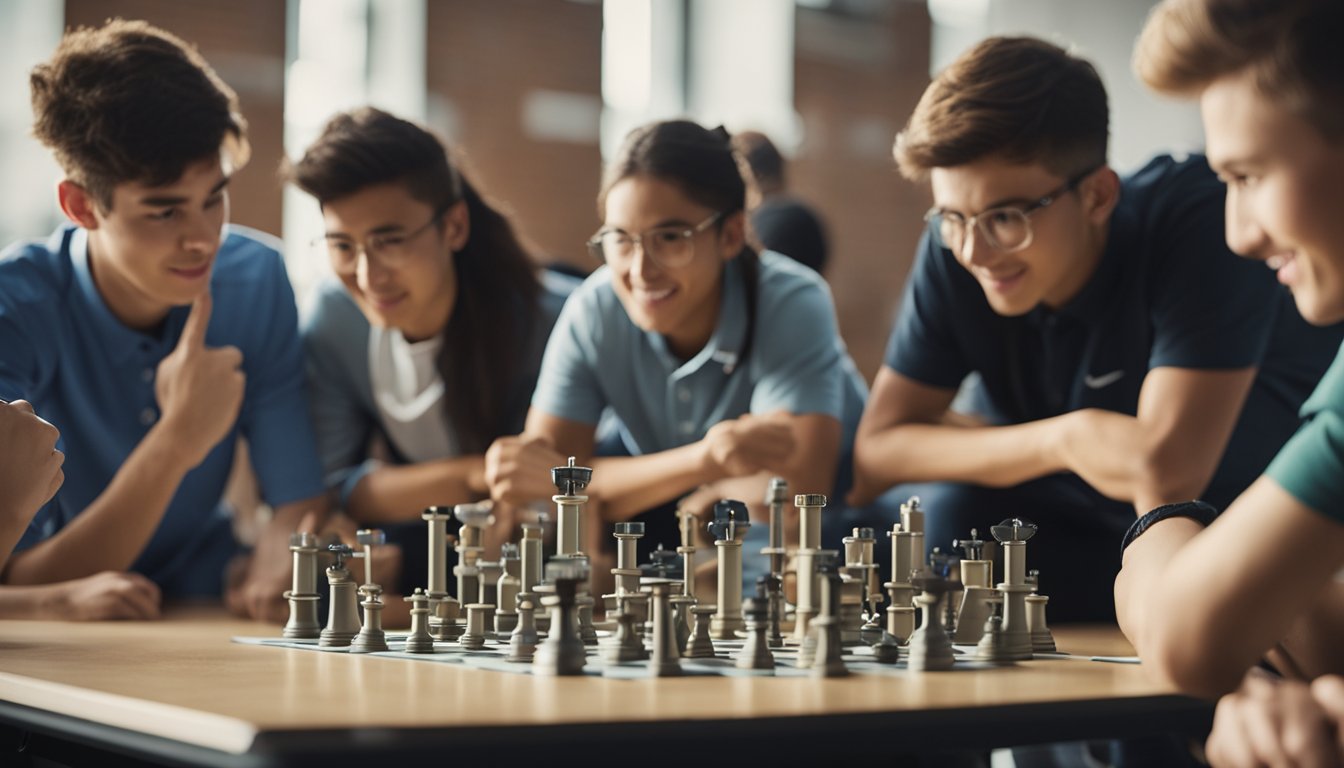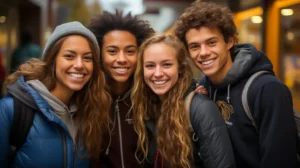As a student in high school, I’ve realized that mastering leadership abilities extends beyond simply directing a team or managing an organization; it influences all facets of life, including academic progress and personal development. High school offers numerous chances for leadership, creating an ideal environment to refine the skills essential for successful leadership. Participation in these opportunities allows us to acquire vital social skills like communicating effectively, motivating others, and having the power to inspire and sway people’s opinions and actions.
Leadership Activities for High School Students
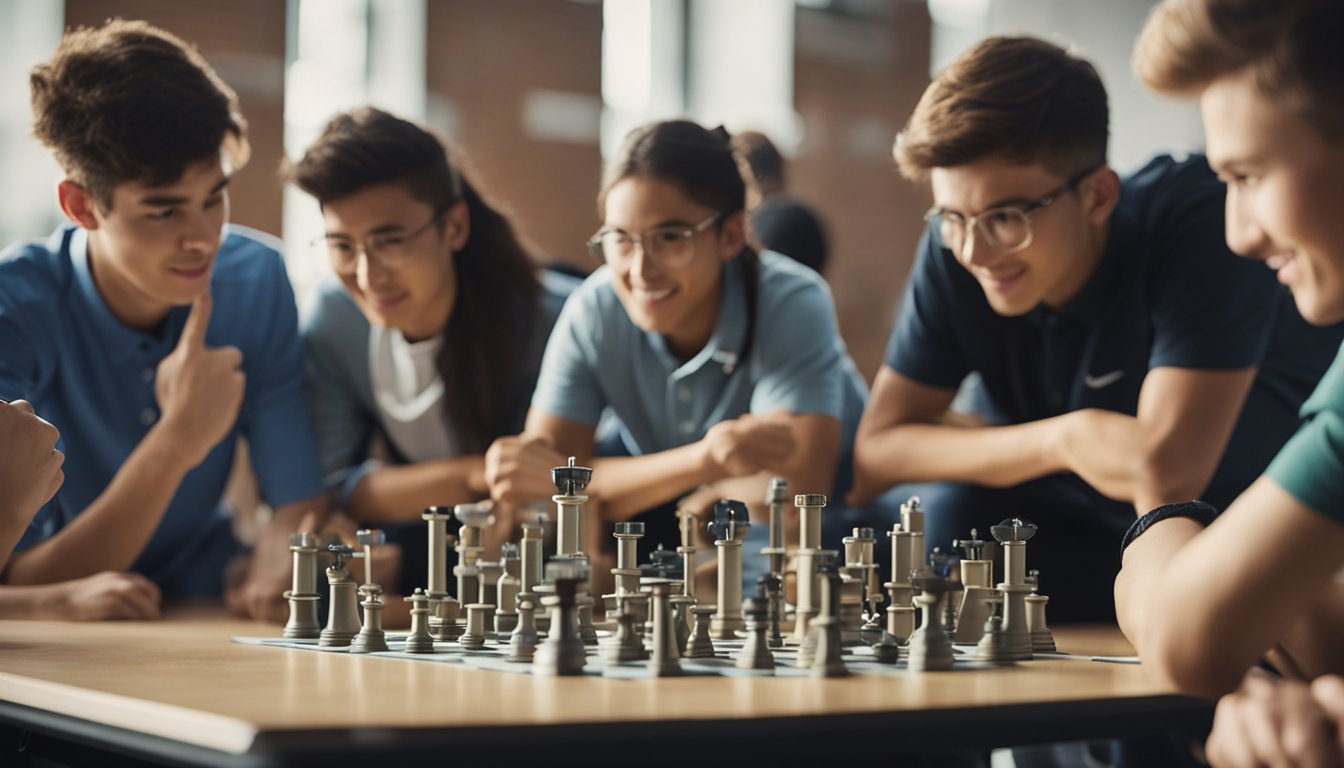
My journey into leadership activities has shown me how pivotal these experiences are in shaping one’s future. Whether running for student government, leading a sports team, or participating in club activities, these roles push us beyond our comfort zones. They teach us about responsibility, strategic thinking, and the value of collaboration. Moreover, they instill a sense of purpose and drive personal growth, which is invaluable at this stage of our lives.
With each opportunity, I’ve realized that leadership isn’t purely about taking charge – it’s about being a positive force in a community, fostering trust and creativity among peers, and being someone who can lead and listen. High school offers a unique platform for trying different leadership styles and discovering what works best for oneself and the team’s dynamic. Through these varied experiences, we gather the tools to not only navigate our high school years with confidence but also to lay down a strong foundation for our future endeavors.
Developing Leadership Through Extracurriculars
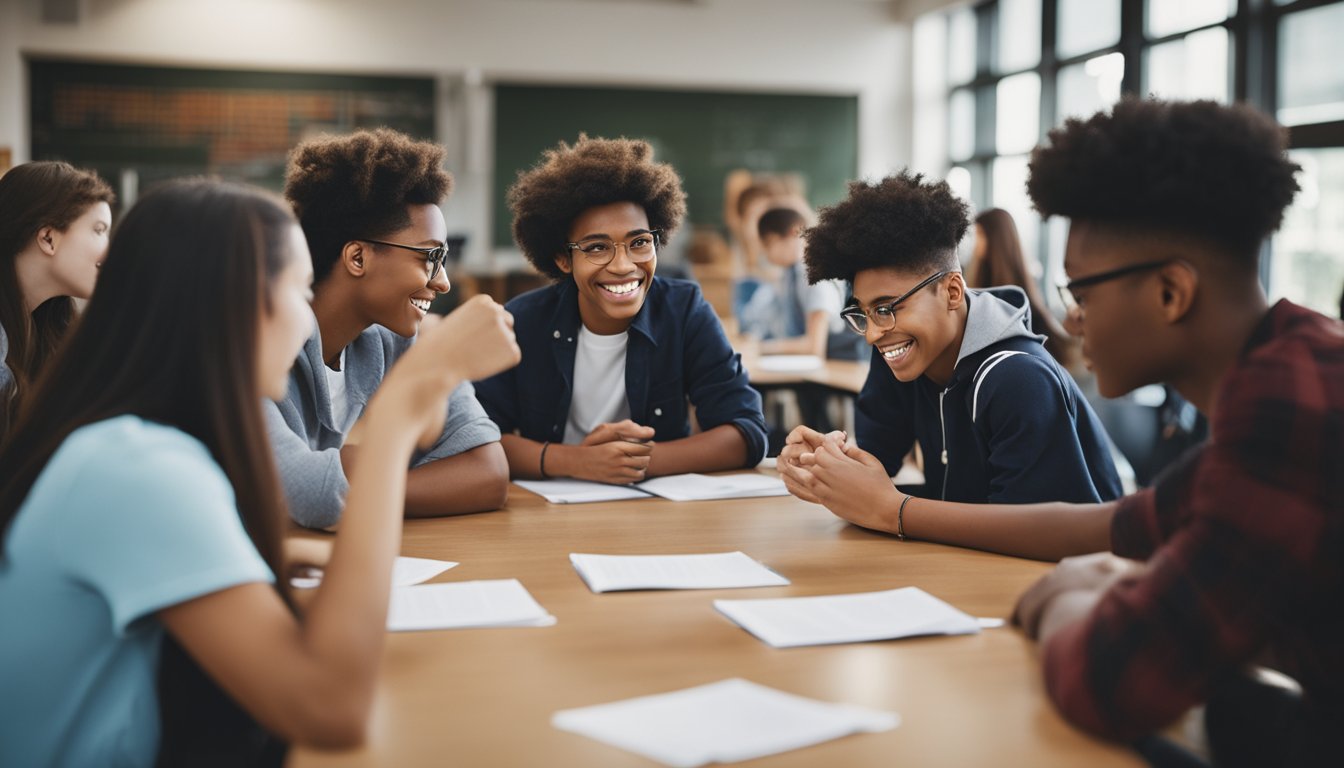
Extracurricular activities offer a great landscape for me to cultivate leadership skills and explore various roles. They provide hands-on experience with teamwork, public speaking, and decision-making, all essential to becoming an effective leader. Here’s how I’ve been engaging in these activities to build my leadership qualities.
Participating in Student Government
I took the opportunity to get involved in student government, which gave me a platform to practice decision-making and communication skills. It’s a direct gateway to understanding the mechanics of leadership, as it requires balancing my peers’ needs and wants with the school’s capabilities. By representing my classmates and planning events, I’ve learned how to negotiate and lead with diplomacy.
Building Team Skills in Sports
Joining sports teams has taught me team building and how to motivate others toward a common goal. As I worked with teammates, I understood the value of setting an example with a strong work ethic and a positive attitude. The dynamic of a sports team is much like any business group; every member has a vital role in the collective success.
Joining Clubs and Organizations
I’ve explored my interests through various clubs and organizations and stepped into leadership roles within diverse groups. Whether it’s a debate club or a business-focused group, clubs are ideal for honing in on specific skills like public speaking, organizing events, or leading group projects. In these microcosms, I practice rallying a team and driving initiatives forward.
Engaging in Performing Arts and Debate
Performing arts and debate activities pushed me out of my comfort zone and into the spotlight of public speaking. They required me to articulate my thoughts clearly and persuasively, an essential skill for any leader. Moreover, the collaboration needed in these activities taught me much about cooperation and the importance of every team member’s contribution to the final performance or argument.
Service and Leadership in the Community
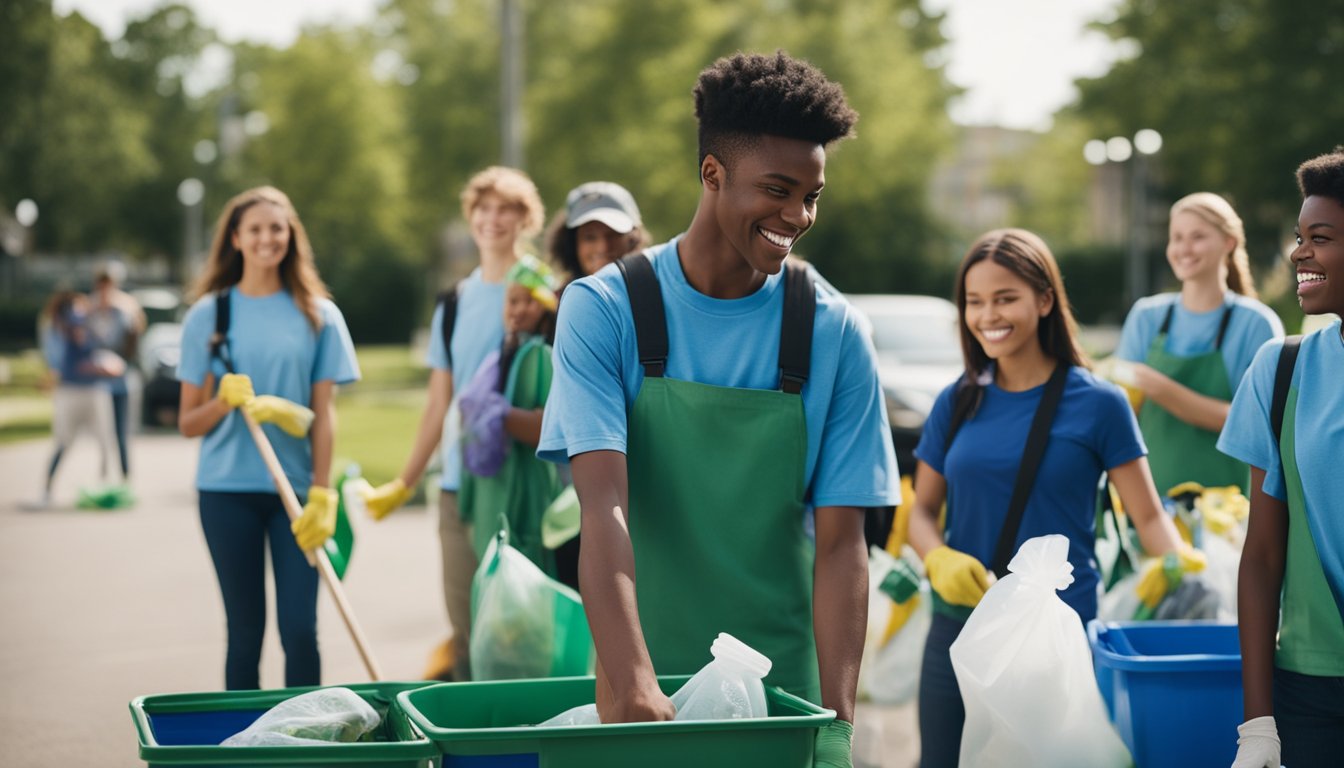
In my journey as a high school student, I’ve discovered the profound impact that service and leadership roles within the community can have, not only on my college application but also in developing my leadership abilities and passion for service-oriented projects.
Volunteering and Community Service
I’ve found volunteering to be a cornerstone of community service. It’s where I learned the value of being service-oriented and how to take responsibility—an essential aspect of being an effective leader. By participating in local clean-ups or food drives, I contribute directly to my community’s well-being and gain skills in organization and problem-solving. My motivation soars when I see the tangible results of my efforts.
Internships and Professional Exposure
Through internships, I’ve gained professional exposure and mentorship that have shaped my leadership abilities. Engaging in an internship, whether it be with a local business or a non-profit organization, allows me to understand the mechanics of real-world problems and the leadership required to navigate them. It also helps me understand the importance of accountability in a professional setting.
Organizing and Leading Volunteer Projects
Organizing and leading my own volunteer projects has taught me the intricacies of project management and team motivation. Whether it’s a charity event or a passion project, these experiences compel me to demonstrate authentic leadership. I learn to inspire others and align a group with a common goal, which is crucial in becoming an effective leader. These projects also serve as valuable discussion points on college applications, highlighting my ability to take charge and make a positive impact.
FAQ
Can you suggest quick 10-minute icebreaker activities suitable for high schoolers?
Quick 10-minute icebreaker activities that work well include “Two Truths and a Lie,” where students guess the lie among three statements, and the Snowball Fight activity, where students write fun facts about themselves on paper, crumple them into balls and then toss them for others to read.
How do ‘Get to know you’ activities benefit high school students and foster a welcoming classroom environment?
‘Get to know you’ activities benefit high school students by breaking down barriers, encouraging interaction, and promoting community. They help students feel valued and understood, creating a more inclusive and supportive classroom environment.
If you enjoyed reading about Leadership Activities for High School Students, check out our other articles:
- Student Council Event Ideas: Engaging and Fun Activities
- PTA Event Ideas: Fun and Engaging Activities for Your School Community
- School Event Ideas for Students: Create Unforgettable Memories
- School Event Ideas: Fun and Engaging Activities
- School Event Ideas for High School: Fun and Engaging Activities
Feel free to also check out our other Articles about School Events from the category “School Life“ and don’t forget to follow us on Pinterest.

